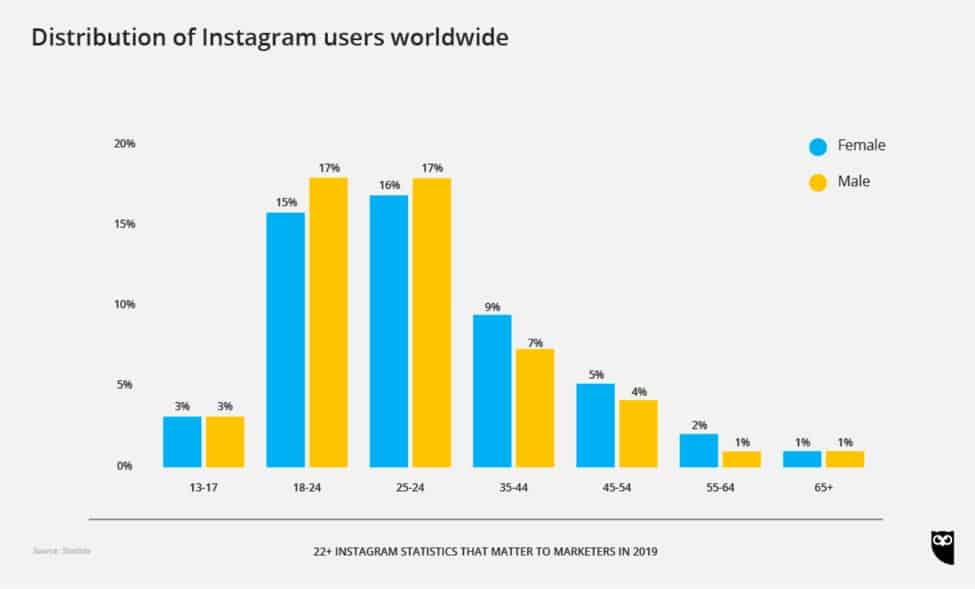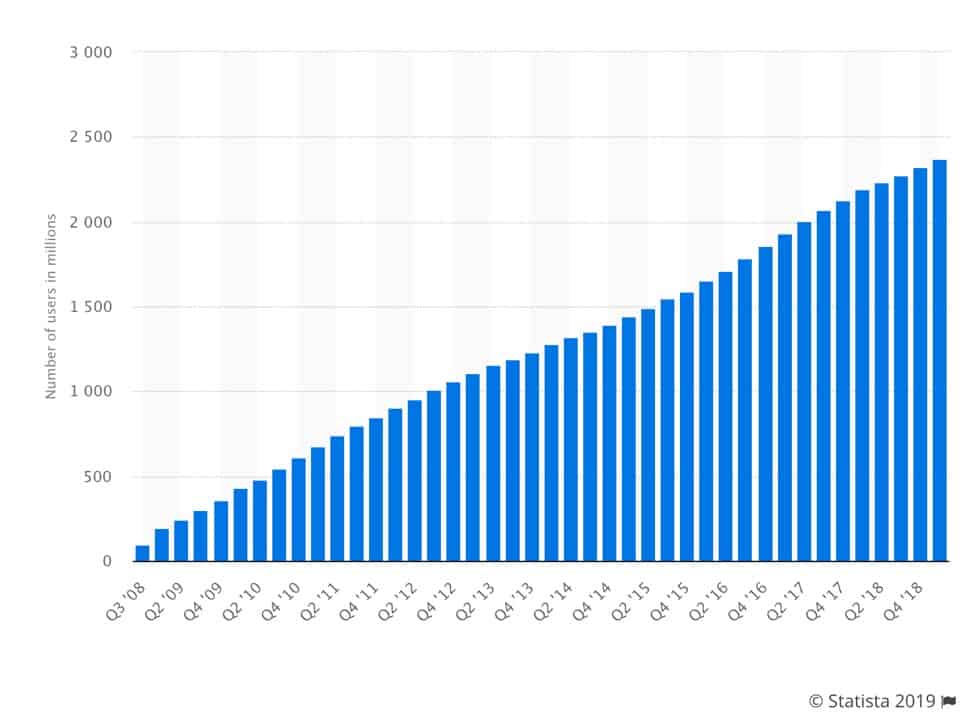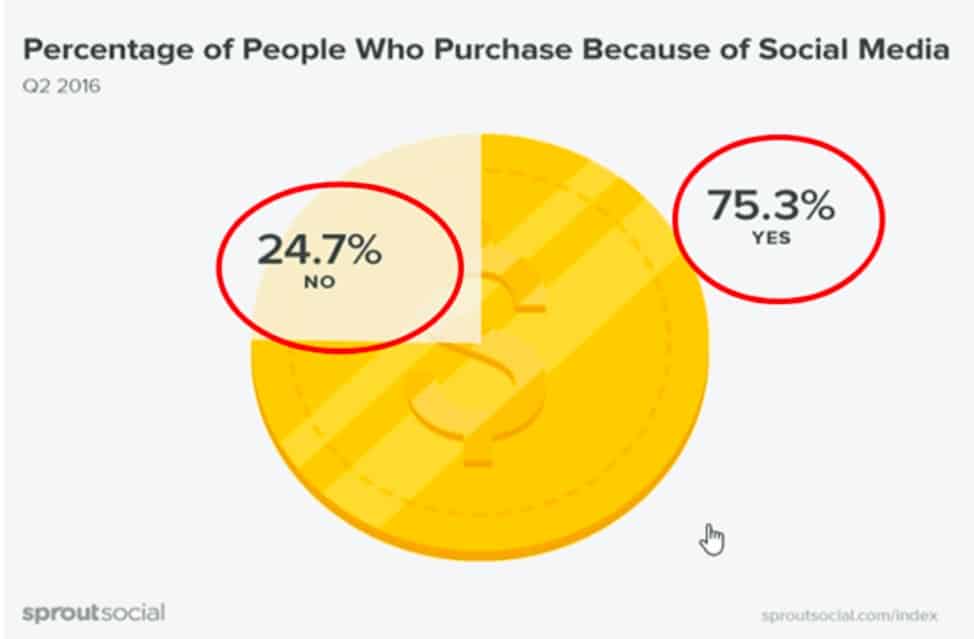[ad_1]
Featured image from Pixabay
Online businesses have benefited in 2019 from using more effective marketing tools. These tools help them to grow revenues, expand operations, and increase profitability. In this post, we share about those tools and describe how businesses like yours are using them.
Think of Social Media as a Marketing Tool
Take social media for example. What began as a novel concept rapidly transformed into a pervasive and indispensable marketing tool. Today, an estimated 70% of Americans actively engage with social media on a daily basis. Back in 2005 this number was just 5%.
Businesses are eager to cash in on the latest marketing trends, and they conduct much of their communications with their target market via social media. By implementing an effective social media marketing strategy, your business, too, can reach ever deeper into the global online marketplace. This will help you to grow a diversified audience, generate and convert more leads, drive sales growth and performance, and stay up-to-date with the real-time pulse of the people. Clearly, social media is powering the narrative as the premier marketing tool for online businesses.
Consider the following social media statistics:

Source: Statista Instagram Users Globally (Male & Female)
- One billion people use Instagram every month, and 500 million people use Instagram daily. What’s more, 88% of Instagram users are located outside of the US. This means that Instagram is a truly global social media marketing tool. Here’s another interesting statistic: 71% of Instagram users are younger than 35 years of age. And there is a near-even split of users between the sexes.
- Additionally, 95% of Instagram users in the US also use YouTube; 91% use Facebook, and 60% use Snapchat. While just 35% of Americans currently use Instagram, 68% use Facebook and 73% use YouTube. The Pew Center reports growing interest in Twitter at 24%, LinkedIn at 25%, and Snapchat at 27%.

Source: Facebook User Stats Statista 1st Quarter 2019
- Global usage of Facebook between 2008 and 2019 indicates a substantial increase in the number of users. For example, by Q1 2019, the number of Facebook users topped out at 2.38 billion monthly active users (MAUs). It’s important to point out that Facebook owns multiple social media platforms. They include Messenger, Whatsapp, and Instagram. These social media platforms dominate the landscape, particularly with the highly effective Facebook marketing campaigns.
- By contrast, Twitter boasts 326 million MAUs. Moreover, there are 100 million daily active users (DAUs) on Twitter. Plus, people send 500 million tweets daily. With 261 million Twitter users outside the US and 69 million Twitter users in the US, this social media platform is the premier microblogging platform in the world. Businesses routinely use Twitter to get real-time news updates out to their customers.
2019 Trends in Digital Marketing Tools
Given the significance of social media as a powerful marketing tool, it makes sense that online businesses are investing heavily in global online ads. According to the stats, 2019 ad spend is expected to rise by 4.7% for 2019. Additionally, location-based marketing initiatives are expected to grow by 14%, reaching $24.4 billion in ad spend this year alone.
Plus, influencer marketing is hogging the limelight in 2019. For example, 43% of advertisers announced big budget allocations toward influencer marketing initiatives for the year.
Additionally, Snapchat has become a popular choice for digital marketers in 2019. The average Snapchat user now generates $1.68 in revenue for 2019, compared to $1.21 in 2018. One of the most promising social media hubs on the scene is TikTok. Advertisers are plenty interested in this new app. That’s because it had already generated $9 million in sales by May 2019. Moreover, marketing experts expect it to produce $100 million in sales as the year progresses.
Effective Content Marketing Strategies Drive Sales
Content truly is king. This was true back in the day, and it’s true in 2019. Content marketing managers understand that premium-value content is worth its weight in gold. Content marketing via blogs, website platforms, product pages, social media sites, newsletters, webinars, seminars, podcasts, and so on are highly valuable. High-quality content conveys a value proposition to customers, who then purchase goods and services. Moreover, they share ideas and add value to the transaction process.
Email Is a Powerful Marketing Tool
Part of the content marketing initiative involves email marketing. In 2019, email marketing is a central component of the marketing process. Email marketing is a cost-effective tool that generates leads and drive sales. And it also facilitates predictable results for businesses.
Marketing experts readily attest to the fact that with email marketing, the business owns the network. Unlike Facebook, which requires businesses to pay for the privilege of sharing posts with a wide audience, email marketing puts businesses in control of their marketing strategy.
RELATED ARTICLE: EMAIL VALIDATION: GIVING YOU MORE ROBUST AND EFFECTIVE EMAIL CAMPAIGNS
Take a Hands-On Approach
This means you can take a hands-on approach to building a valuable asset. It begins with constructing an email database, born from a subscriber list of contacts and clients. Of course, it’s imperative that each person on your email list has granted you permission to contact them in this way. Otherwise, your emails will be relegated to the spam filter.
Marketing managers have fine-tuned this technique by limiting email marketing to just one message every week or two.
Using Effective Tools to Drive Marketing
Results
In 2019, marketing experts are using various tools to generate effective results. These include a combination of high-quality software tools such as Hootsuite, Hubspot, Social Oomph, Sendible, and Sprout Social. However, given that many marketing tools are redundant, experts conduct processes to bring more efficiency to these marketing tasks.
These tools save time, money, and manpower by automating and consolidating activities. Additionally, they reduce the likelihood of error by way of optimal performance strategies and advanced analytics.
In other words, marketing tools span the full spectrum. That is, they include social media, content marketing, and email marketing channels.
Turn to Enticements to Engage Your Customers
Various multinational corporations are also turning to enticements to drive home their marketing message to customers.
For example, incentive-based marketing communications such as special offers, bonuses, promotions, and gamification of marketing offers abound. The 888 casino no deposit bonus is a case in point. This global gaming phenomenon consistently ranks atop the pile of reputable online casino providers.
The success of 888casino is largely attributed to its unique marketing initiatives. Bonuses and promotional offers are enticements designed to make it worthwhile for players to register, deposit, and play. By wooing players to register, this online casino has found the “elixir” to marketing success in 2019.
Marketing Tactics Must Serve Marketing
Objectives

Source: Sprout Social
Tactical activities are short-term objectives. Typically, these are day-to-day activities. On the other hand, marketers measure strategic objectives over the long term.
Successful implementation of marketing strategies requires the establishment of a sound plan of action. In the words of management guru David H. Levy, “If you don’t have a direction, any path will take your business to its destination.”
However, a clearly formulated strategy allows for contingencies with all these issues. Social media objectives, content marketing objectives, and promotional tools should work in sync to establish an efficient plan of action for your business.
This means that your social media goals must gel with your online business’s overall marketing plan. Therefore, you must write your goals down. Only in this way can you measure and achieve your goals.
Consider this: Marketing studies indicate that businesses with written goals are 30%-40% more likely to succeed. Unfortunately, however, various infographics suggest that 83% of people have no strategic goals.
Only 14% of people have strategic goals. However, these are the people who are ten times more successful. People whose business plans encompass written goals (just 3% of operations) are thirty times more successful in the long term.
Research Your Marketing Strategy
To achieve success, you must thoroughly research your marketing strategy. Moreover, your goals must be quantifiable and qualifiable.
Some metrics are more easily understood through numerical data. On the other hand, others are qualitative in terms of appeal, satisfaction, and opinion. You can garner audience insights through surveys, market research, blogs, social media platforms, customer support analytics, email, and other means. However, you’ll best achieve engagement through interactive elements such as gamification, promotional offers, contests, and social media engagement plans.
Moreover, the only way to ensure engagement on social media is through proper communication.
Marketing professionals stress the importance of knowing your target market. This involves targeting your audience with the right content at the right time. Additionally, use the right lingo to hook customers into responding to posts and offers. Match every post with a description and a functional link.
Effective social media strategies always bear fruit because they engage users. More importantly, remember that audiences are smarter today. They don’t want a hard sell. They want to partner with companies and feel invested in the products and services your business is offering.
Conclusion
Effective marketing is really about resonating with your customers. They want to know you follow their life philosophy of responsible behavior, respect for the environment, and inclusiveness. Today, companies that adopt socially responsible practices are more likely to strike it rich with their customers.
[ad_2]
Source link
Leave a Reply